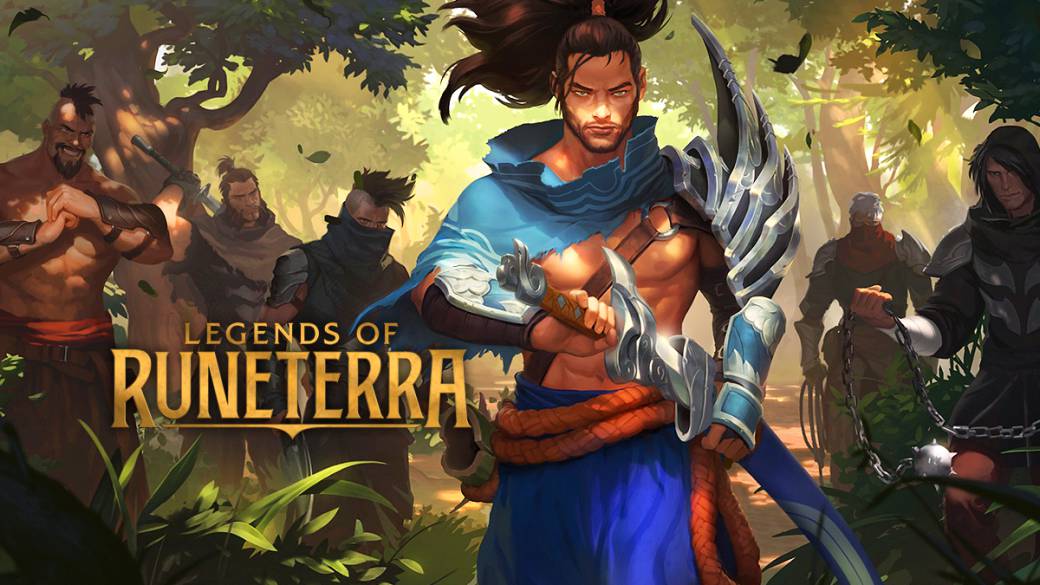
We analyze Riot Games' proposal based on the League of Legends lore to also conquer the genre of trading cards.
Launching a video game in a genre where there is a clear dominator -Heartshtone- in this case may seem almost crazy, but as Jeff Jew, executive producer of Legends of Runeterra told us when we could talk to him, launching a video game is always a risk, no matter what genre we are talking about. Now, if you have more than a decade of experience in online gaming with such a high demand as that of League of Legends, one of the most popular competitive games of all time, you have earned your trust. Thus, Riot Games continues its expansion beyond its MOBA with the final version of a card game that breaks many conventions that fans of card collectible games were used to.
We don't know if it's strange to start by talking about your business model, but one of the unwritten rules Legends of Runeterra goes through the Arc de Triomphe is card envelopes. If the game modes of sports titles based on card collecting already focus their economy on the sale of so … BOOTY BOXES, how can the card games themselves not? Well, Riot Games goes and another way of working is removed, such as a crafting -or buying- card mechanic where randomness in exchange for money is completely eliminated.
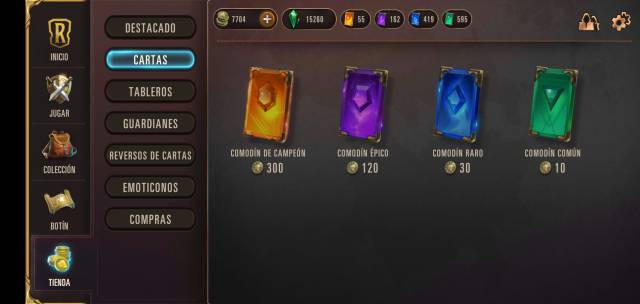
To get a letter we have several options. One, we can get it randomly in Capsules or Chests, which obviously can come out or not, but none of these contents can be acquired in exchange for real money, but through adding experience playing, fulfilling the daily missions or the Region Paths that have have been expanded in this final version compared to what was seen in the beta. Second, we can craft it with fragments or wildcards and three, we can buy it directly. In short: there is no possibility of putting money to see if by chance we get the card we are waiting for to complete the deck we want to build. In fact, Riot Games' commitment is to never sell this type of random content. Now … what will the rest of the companies do? Are they really going to have the courage to keep selling loot boxes when there are multiple more generous alternatives with the player? Riot has set a precedent and hopefully the example will spread.
Do not misunderstand us, there is absolutely nothing happening to invest money in a free to play game such as Legends of Runeterra, in fact, it is a more than fair way to reward the work of a team that has strived to create something benevolent towards the player. What is achieved in this way is giving real value to our money: we know what we are paying for. Has it ever happened to you that you buy envelopes worth, say, 20 euros, and you get absolutely nothing usable? Yes, it has happened to you too … Let's think about it, we don't have to go through that ring any more.
Also, the reward system is very generous. The Beta Region Roads are maintained, expanded with more stops -that is, prizes- and the new region, Aguas Estancadas, is added. The already popular weekly box also continues, which we can open every Tuesday, plus the prizes we get from the Expeditions. In short, practically every time we play, for a short time, we will have the feeling that we have achieved something.
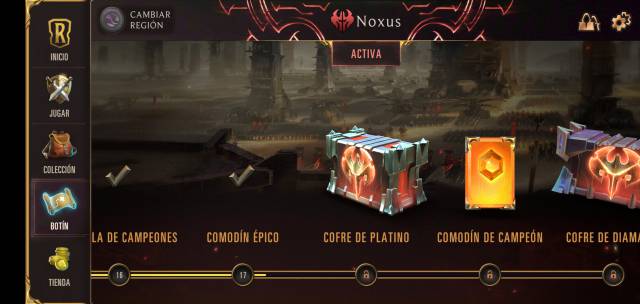
Very well, but … how do you play?
The quick way to say it is that the objective of Legends of Runeterra, as in many other card games, is to reduce the life of the rival – in this case, the Nexus – to zero, starting from a total of 20. We played units and spells with a limit of mana, and … If you have ever played Hearthstone, you even see a screenshot of LoR, you will think that it is more of the same, but you will realize that nothing further if we delve deeper. It is true that the part of playing allies is the same, and on your offensive turn you execute your strategy, but the defending player also has the opportunity to react whenever allowed by the mana and speed of spells, which can be slow, fleeting … depending on the rounds each turn they need to take effect. This makes the tables change so fast that from one round to the next you can go from having the game won to being complicated and in what way simply with your opponent having a Decline. This is just an example, we mention one of the most frustrating cases and that has happened to all of us who have spent months with Legends of Runeterra.
As we have mentioned, we also have a mana that dictates the number of cards we can play according to their cost, but we do not have to balance it, that is, what is left will become spell mana for the next phase. It is highly positive that this occurs when we have nothing to play on turns 1 and 2 but we have on the third turn 3 mana to play one unit plus another 3 to cast a spell and offset the disadvantage of those first two turns.
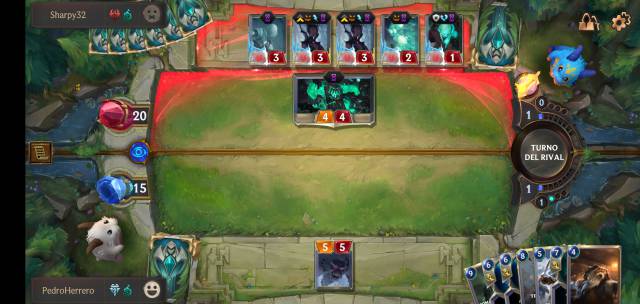
Obviously, the keywords of each unit add complexity, and there are many: Overwhelm, Contender, Flimsy, Last Breath … and to top it off now in the final version and set 2 Pleamar others have been added such as Vulnerable, Assault, Harmony … We have been so Only a few months of Legends of Runeterra and its wealth of strategies is already enviable, in fact, we very much doubt that in just 4 months -approximately- there has been some card game with this proliferation of different decks, something that helps make a more diverse metagame and with it and what is more important, a more fun game where you don't have the feeling of always playing against the same deck.
Another of the differential aspects of Legends of Runeterra are the Champions, well known from the League of Legends lore: Braum, Garen, Fiora, Vladimir, Teemo, Yasuo … Obviously they are the most powerful cards in the game, and it's not that they don't have an immediate effect when they come into play, but they are devastating when they level up. For this we have to meet certain requirements, and with it, base the strategy of our deck on improving our Champions and thus have the tables in our favor. Not so long ago there were some underused ones, and we actually asked Jew for Yasuo or Vladimir, for example. Okay, so we've played quite a few games with a unit-based deck and stun spells, and once Yasuo's level is up – something not too complicated: you just have to stun five – it deals damage to the stunned unit equivalent to its value in attack, becoming case in an instant win. Of course, there are still Champions like Draven or Kalista that it is not usual to see them, but it is a matter of time and balance. And in that at Riot they have plenty of experience, so you have to stay calm in that regard.
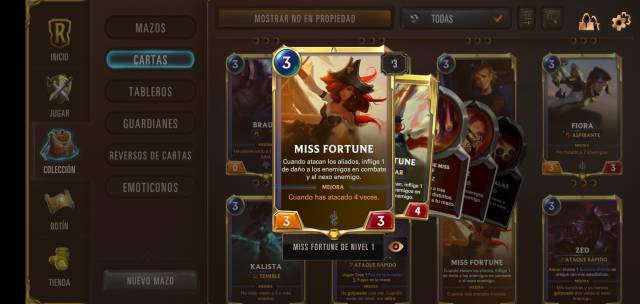
Of course, none of them breaks the game, and also, before each one, we know exactly which ones the opponent has in their deck, so we intuit their strategy. Does this make the game more predictable? It can, but in the end it is a way for the game to become a give and take of two players trying to carry out their work at the same time as avoiding that of the opponent, and also, it gives the feeling that Riot Games wants to avoid at all costs the RNG -random factor-, which is already quite present when it comes to drawing cards, in the sense that from the beginning we know what we are dealing with.
Now also on mobile
Simultaneously with the release of the final version of Legends of Runeterra, its version for iOS and Android has arrived, something that will come in exceptionally well to attract more players for its cause. In fact, all the screenshots that accompany this text are from this port, which looks fantastic visually, and responds surprisingly well to our actions despite the small size of some icons.
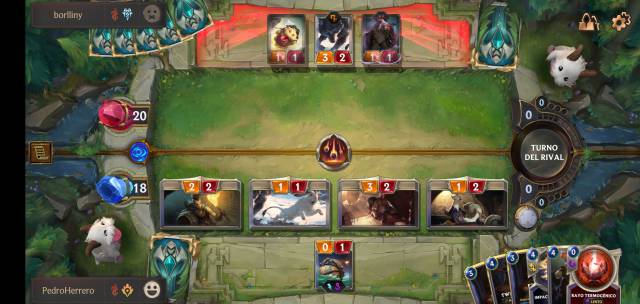
However, we have sometimes appreciated a lack of precision when selecting cards during the game, suffering some "missclicks" that have cost us defeat. To avoid this, you must know all the vicissitudes of this version, such as enlarging our hand by simply pressing when it is on the right of the screen. Also, and this is a shame because it is a spectacle, the game suffers severe drops in the frame rate in the animations when a Champion levels up, although fortunately it is not something that directly affects the game itself. Despite this, it is a perfectly playable version, very good as a complement -or why not, main- to the PC, and that will surely continue to improve.
CONCLUSION
Ultimately, it is great to find a card game that really relies on action and reaction mechanics, and not only that, but continually requires the activity and interactivity of both players. It has been playable with the key, and as we mentioned at the beginning, a business model has been completely embroidered that, far from being a butcher shop for the player's portfolio, is extremely generous, without making any distinction between the players who contribute real money and those who don't. It does not even distinguish, and that we are understood, between the good and the bad players, since they will also have an opportunity against the veterans, partly due to the great balance that is currently in the metagame, and also because of that model of economy of the game that makes it so easy to build a competitive deck for very little. Riot Games has it all to revitalize the genre, if you haven't already, and also to create a long-running esport from now on.
THE BEST
- It requires continuous activity on the part of the player, you are never looking at how the rival acts.
- Lots of keywords that add depth.
- A very large card collection for early game heights.
- Fair and generous business model and rewards with the player.
WORST
- At the moment, little single player content beyond tutorials.
- At first it can be difficult to understand some mechanics, as well as the speed of spells.
Very good
Game with a remarkable finish that we will enjoy and remember. A good purchase, highly recommended for lovers of the genre. It is well cared for at all levels.
